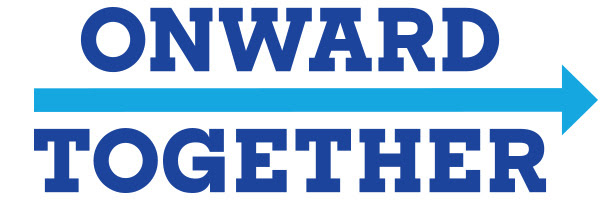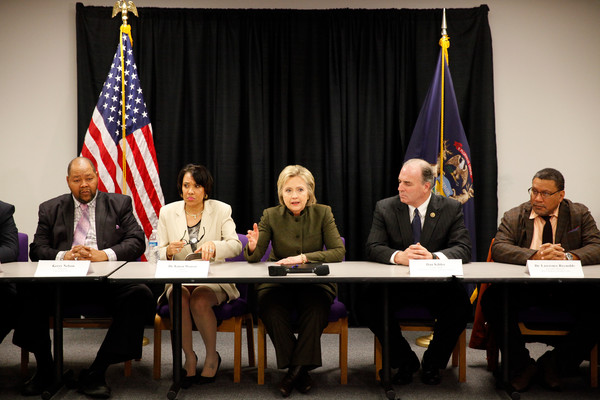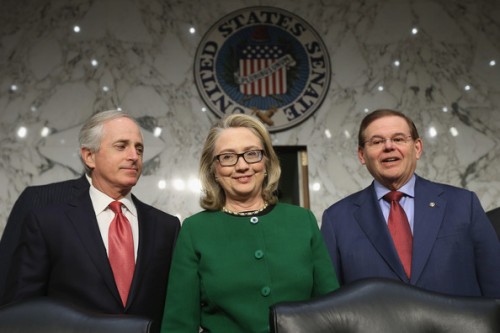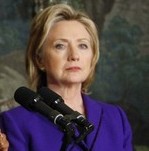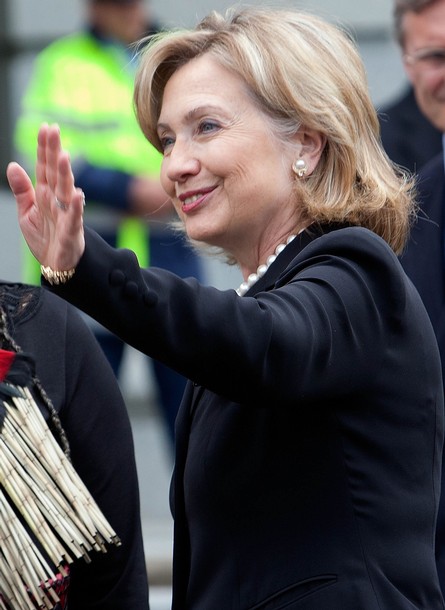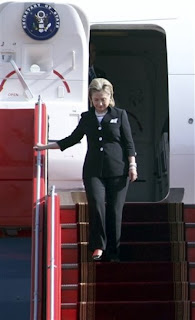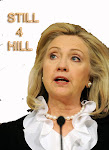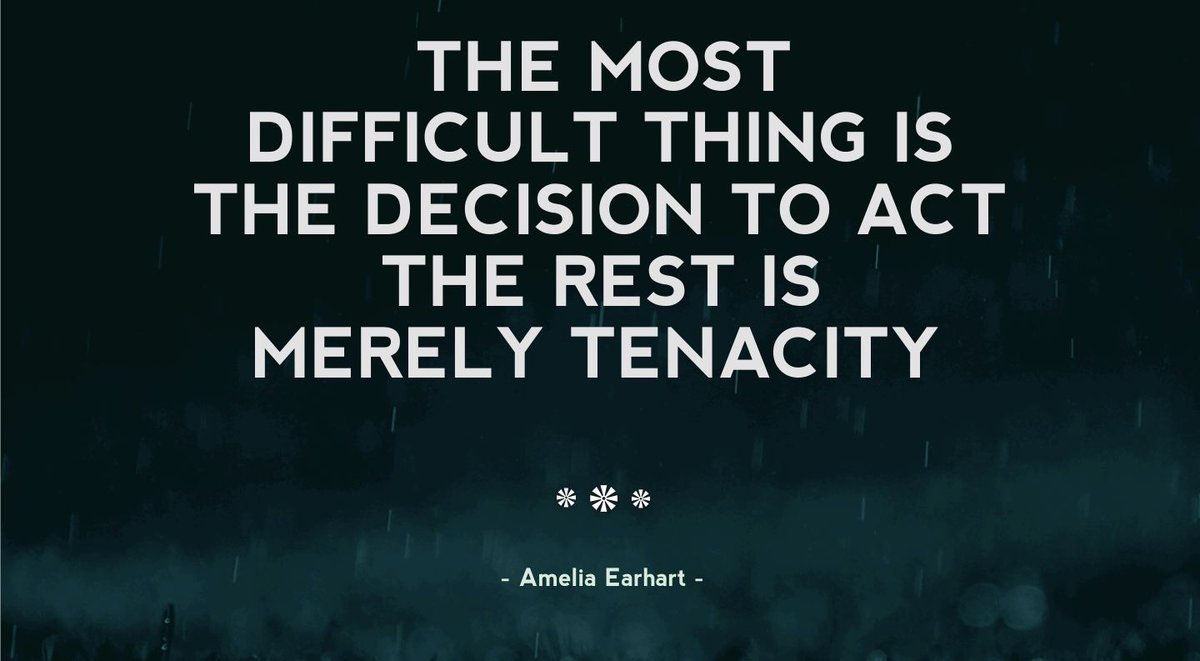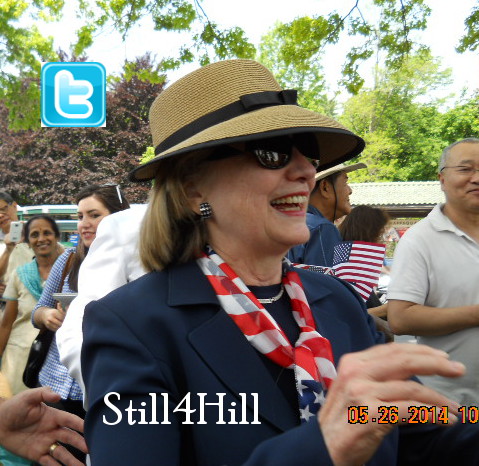Remarks With Slovakian Deputy Prime Minister and Foreign Minister Miroslav Lajcak Before Their Meeting
Remarks
Hillary Rodham Clinton
Secretary of StateTreaty RoomWashington, DCJuly 25, 2012
SECRETARY CLINTON: Well, it’s wonderful to welcome the Foreign Minister of Slovakia here. He’s someone that I’ve worked with before and I’m happy to be working with again on a full range of issues that are of mutual concern to us both. I’m looking forward to a very broad discussion of a number of issues, both bilateral, as well as within Europe, and then of course global. But it’s very good to see you here again.
DEPUTY PRIME MINISTER LAJCAK: Thank you very much. Thank you, Secretary Clinton. Good afternoon. I’m very happy to be back in Washington, DC and to have the opportunity to meet with you and present the priorities and the challenges of the new Government of Slovakia, to speak about our bilateral relations, which are excellent, and to speak about many things we doing together to promote peace and democracy in the world, particularly in Afghanistan, in Tunisia, in the Balkans, in Eastern Europe. I’m looking forward to our visit.
SECRETARY CLINTON: Yes. It’s wonderful to see you.
DEPUTY PRIME MINISTER LAJCAK: Thank you.
SECRETARY CLINTON: Thank you, all, very much.
Posts Tagged ‘Slovakia’
Hillary Clinton With Slovakian Deputy Prime Minister and Foreign Minister Miroslav Lajcak
Posted in Foreign Policy, Hillary Rodham Clinton, Secretary of State, state department, U.S. Department of State, tagged Foreign Policy, Hillary Clinton, Hillary Rodham Clinton, Miroslav Lajcak, Secretary of State, Slovakia, State Department, U.S. Department of State on July 25, 2012| 4 Comments »
Hillary Clinton on the U.S.-Slovak Joint Action Plan to Combat Nuclear Smuggling
Posted in Foreign Policy, Hillary Clinton, Hillary Rodham Clinton, Secretary of State, state department, U.S. Department of State, tagged Foreign Policy, Hillary Clinton, Hillary Rodham Clinton, nuclear weapons, Secretary of State, Slovakia, State Department, U.S. Department of State on December 8, 2011| Leave a Comment »
Remarks on the U.S.-Slovak Joint Action Plan to Combat Nuclear Smuggling
Remarks
Hillary Rodham Clinton
Secretary of StateNATO HeadquartersBrussels, BelgiumDecember 7, 2011
I am very pleased, Minister, that we were able to do this. It has been a very important bilateral matter that our respective governments have worked diligently on. And it is an incredibly significant subject, combating the smuggling of nuclear and radioactive materials. There is no greater threat to the safety and security of our world than preventing nuclear or highly radioactive materials coming into the hands of terrorists, and it’s a danger that no one country can protect against on its own. And today, Slovakia has made an important commitment to our collective efforts, and we are very appreciative.
My country has now signed nine such agreements with other countries around the world, but this is the first one we have signed with an EU nation and a NATO ally. So this agreement reflects Slovakia’s strategic importance as a gateway to the EU as well as your government’s commitment to exercising leadership in advancing nuclear security.
As you already have heard, this agreement takes the form of an action plan. It specifies more than 40 steps our two governments intend to take to strengthen our mutual capacity to prevent, detect, and respond more effectively to the threat of nuclear smuggling. The United States has guaranteed our efforts to work with you to make sure that it’s not only the two of us working together but our neighbors, and particularly Slovakia’s neighbors, because in a networked world like the one we live in today, all nations have to be committed to this joint effort.
So, Mr. Dzurinda, I am grateful to you for your leadership, to the people and Government of Slovakia, and thank you for being here with me for this important signature.
Secretary Clinton’s Remarks With Slovak Prime Minister Iveta Radicova
Posted in Hillary Clinton, Hillary Rodham Clinton, Secretary of State, state department, U.S. Department of State, tagged Hillary Clinton, Hillary Rodham Clinton, Iveta Radicova, Secretary of State, Slovakia, State Department, U.S. Department of State on November 10, 2010| 5 Comments »
This one is especially for Lilly! Her Prime Minister received the Glamour Award as Hillary did last year. Congratulations to PM Radicova!
Video: Secretary Clinton’s Remarks With Slovakian Foreign Minister Mikulas Dzurinda
Posted in Hillary Clinton, Hillary Rodham Clinton, Secretary of State, state department, U.S. Department of State, tagged Hillary Clinton, Hillary Rodham Clinton, Mikulas Dzurinda, Secretary of State, Slovakia, State Department, U.S. Department of State on October 19, 2010| 2 Comments »
This one is especially for Lilly!
Remarks With Slovakian Foreign Minister Mikulas Dzurinda
Hillary Rodham Clinton
Secretary of StateTreaty RoomWashington, DCOctober 19, 2010
SECRETARY CLINTON: Well, good afternoon, everyone. It’s a pleasure to welcome Foreign Minister Dzurinda to the State Department today. He is not a stranger to Washington and neither is our relationship and friendship with the Slovak Republic. They are a close friend and ally who shares our commitment to freedom and democracy. And in less than 20 years, Slovakia has made an extraordinary transition from a land locked behind the iron curtain to a vibrant democracy. It is a pillar of regional stability and cooperation, with some of the highest growth rates in Europe. And in the European economic context, it is still very much a beacon of economic development. Slovakia is essential to the integration of the Western Balkans and its eastern neighbors into Europe and Euro-Atlantic institutions and a prime example of how greater integration benefits the broader European community.
The foreign minister and I just concluded a very productive meeting where we discussed the region. I appreciated his insight and views on a number of the issues ranging from energy security to protection for minorities. The upcoming summit in Lisbon, where we hope to finalize NATO’s new Strategic Concept and address U.S.-EU cooperation is another area where we will work together.
And I’d like to thank the foreign minister and the government and people of the Slovak Republic for their continued commitment to promoting and defending our shared values around the world. Your contributions to the NATO mission in Afghanistan are helping the people of Afghanistan build a more secure and prosperous future, and we are greatly impressed by and honor the service of Slovak soldiers serving alongside American troops. And I very much want to express our gratitude for the affirmation of your commitment to the ISAF mission during Deputy Secretary Steinberg’s recent visit to Bratislava.
We’re very proud of our friendship. I have known the foreign minister in his earlier incarnations in various positions and I’m delighted to have this opportunity to work with him on behalf of our two countries.
FOREIGN MINISTER DZURINDA: Thank you very much, Madam Secretary of State, ladies and gentlemen. I am very happy being here in Washington. I used time, which was created by Madam Secretary, to describe our cooperation in three areas. The first, which is the most important, is the area of political dialogue. I mentioned or I reminded that Slovakia holds the presidency of the V4, Visegrad Four cooperation. We want to contribute also in regional cooperation. There are many specific priorities in this cooperation – there’s energy security cooperation in the area of Roma inclusion into society and many others.
On Friday, we organized the meeting of Foreign Minister of V4 plus Western Balkans Foreign Minister. Beginning of next year, we will organize ministerial meeting with the partners from the East, expression of our intention about and interest about Eastern partnership. I told Madam Secretary that we are not so big country, but we want to be concentrated in two main areas to the east and to the Western Balkans, and we want to contribute.
The second area is Syria defense and military cooperation. I am proud and very happy that in November we will increase the number of soldiers and trainers in Afghanistan as a part of our ISAF contribution. We are very thankful to the U.S. because they train and they educate our soldiers – National Guard, Guards of Indiana, is our traditional partners. The cooperation has been taking place since 1994. It is continuing and this is very helpful for us.
And last but not least, we spoke about economic dimension of our cooperation. We have more than 120 U.S. companies in Slovakia, and now we want more to cooperate in the area of research and development and innovations.
So thank you very much. I am very happy because I can imagine how busy are you, how often you travel to many countries, and I am very happy that you could create the space for our (inaudible).
SECRETARY CLINTON: Thank you.
MODERATOR: We’ll begin with (inaudible.)
QUESTION: Hi, Madam Secretary, Mr. Foreign Minister. Madam Secretary, there were reports today that the remaining two hikers will be put on trial on November 6th. I was curious if you had particular reaction that and if you’ve heard that through any of the channels like the Swiss. Thank you.
SECRETARY CLINTON: We are aware that their lawyer has reported this date. We continue to express our hope that the Iranian authorities will exercise the humanitarian option of releasing these two young men. We do not believe there is any basis, whatsoever, for them to be put on trial. And we regret that they and their families are being subjected to a criminal system that we do not think, in any way, reflects their actions.
So it’s our continuing request to the Iranian Government that just as they released the young woman, that they release these two young men. There are many areas where we need to be discussing matters between the United States and Iran that are of great significance to not only our two countries, but the world. And it’s unfortunate that Iran would be holding, for now more than a year, two young men who should be released and returned to their families.
MODERATOR: (Inaudible.)
QUESTION: Madam Secretary, also I would like to ask the question of prime minister – the Slovak prime minister.
MODERATOR: (Inaudible) foreign minister. (Laughter.)
QUESTION: I’m sorry.
SECRETARY CLINTON: It’s a habit hard to break. (Laughter.)
QUESTION: I left Slovakia – I left Slovakia five years ago. I don’t go anyplace. (Laughter.)
You talk about the cooperation between both countries, which is really, really good. I would like to ask about the issue that you disagree on. For example, over Kosovo. Do you expect that our government is going to change attitude towards Kosovo independence? And for prime minister, do you feel the pressure from the U.S. changed position?
SECRETARY CLINTON: Well, we discussed the foreign minister’s opinions about what is happening in the Balkans. They coincide with mine, having just been there last week. We think that there is a great opportunity for Serbia to make progress in its ambition to be integrated into Europe. We think that Serbia and Kosovo have an opportunity now under EU sponsorship to engage in a dialogue to begin to solve the practical problems that are still between them. Certainly, the United States thinks that the issue of independence and sovereignty is decided by the International Court of Justice.
I understand the position of the minister and his government, but what’s most important is the positive role that the minister and Slovakia is playing in trying to limit the differences and create a different reality in the Western Balkans and in the entire region. The unfinished business of integrating the Western Balkans and the Eastern countries into the European Union and the Euro-Atlantic institutions is something we totally agree on. And I think we both have the same goals.
Obviously, we would like to see more countries recognize Kosovo, now that the International Court of Justice decision has been determined. But we also know that it’s important to keep working to bridge the historical divisions so that we can have a region that is peaceful and stable and moving toward Europe.
FOREIGN MINISTER DZURINDA: First of all, I want to tell that I admire a lot the last engagement of her Madam Secretary of State when she visited the countries of the Western Balkans. It was very helpful also before European Council next Monday. I appreciated a strong signal, an appreciation that Serbia cooperates with (inaudible) and it decided properly to go to the West, I would say. It was very, very, very, very important.
And also, I followed the statement of Madam Secretary when she visited (inaudible), when she told that the (inaudible) of Kosovo will depend on the level of standard of the Serbs living there – very, very encouraging.
And to your question directly, no, I didn’t feel any pressure. I tell you why. It is not a goal to recognize Kosovo. And I did my best to express what is a goal in my head. The goal is to help or to facilitate, to establish relations between Belgrade and Pristina which will be good, smooth, and what is essential, sustainable. This is the goal. And I believe that Slovakia is a country not recognizing Kosovo, is – can help a lot. I want – I will do my best.
SECRETARY CLINTON: Thank you so much, Minister.
FOREIGN MINISTER DZURINDA: Thank you, Madam.
SECRETARY CLINTON: Thank you. Thank you very much.
Secretary Clinton’s Message on The Slovak Republic’s National Day
Posted in Hillary Clinton, Hillary Rodham Clinton, Secretary of State, state department, U.S. Department of State, tagged Hillary Clinton, Hillary Rodham Clinton, Secretary of State, Slovakia, State Department, The Slovak Republic, U.S. Department of State on August 31, 2010| 1 Comment »
I would be woefully remiss not to post this and dedicate it to our Lilly!
The Slovak Republic’s National Day
Hillary Rodham Clinton
Secretary of StateWashington, DCAugust 31, 2010
On behalf of President Obama and the people of the United States, I congratulate the people of the Slovak Republic as you celebrate the 18th anniversary of your constitution on September 1.
Today, we honor your constitution and your commitment to the principles of freedom and democracy that bind our nations together. In less than 20 years, the Slovak Republic has transformed from a land locked behind the Iron Curtain into a vibrant democracy and a full member of NATO and the European Union. We appreciate the Slovak Republic’s partnership as we defend our shared ideals and advance our common goals around the world, particularly in Afghanistan where our soldiers continue to help the Afghan people build a better, more secure future for their country.
The United States also joins you in mourning and remembering those who tragically lost their lives in Devinska Nova Ves on August 30. We are saddened by this senseless loss of life and extend our heartfelt condolences to the family and friends of those who perished and were injured on Monday.
I wish the people of the Slovak Republic a day of safe and peaceful celebration. The United States is honored to be your ally, your partner, and your friend. I look forward to continuing to deepen our relationship as we work together to build a free, stable, and more prosperous world.
Secretarial Snippets: Photos and Remarks of Hillary Clinton Today
Posted in Hillary Clinton, Hillary Rodham Clinton, Secretary of State, U.S. Department of State, tagged Beijing, China, Czech Republic, Czechoslovakia, Hillary Clinton, Hillary Rodham Clinton, Secretary of State, Slovakia, State Department, U.S. Department of State on November 18, 2009| 2 Comments »
Well there was not much coming in today, so I have a few more pictures of that bilateral from the morning which I am sure you will find cute and fun for the always fascinating facial expressions the SOS makes. There are also a few photos from the state dinner reception at the Great Hall of the People in Beijing. I would LOVE to know what was going on in this first picture!
In addition, and on a completely different note, Secretary Clinton issued some remarks on the 20th Anniversary of the Velvet Revolution in Czechoslovakia. As I mentioned in relation to the 20th Anniversary of the Fall of the Berlin Wall, that event touched off a series of collapses of Soviet Bloc governments. It seemed that every week another Eastern Bloc government fell, the people took over, and the Iron Curtain ripped and disintegrated. More remarks like these will be issued, as we progress through anniversaries of that fall of the Soviet Empire.
For many of us, this one in Czechoslovakia was especially sweet since we had seen an earlier effort in 1968 that was mirrored by a tipping point in our own anti-war movement here and protests in the streets of Chicago during the Democratic National Convention. It was wonderful to see these brave people finally free.
Here are the Secretary’s remarks.
Statement on 20th Anniversary of the Velvet Revolution
Hillary Rodham Clinton
Secretary of State
Washington, DC
November 17, 2009Twenty years ago, the people of Czechoslovakia carried forward the wave of freedom that began in the Polish shipyards, surged over the Wall in Berlin, and ultimately liberated millions of people across Europe. Americans prayed for the students in Prague who faced down an oppressive regime and propelled a dissident playwright from prison to the presidency. We cheered for a nation that had grasped for liberty in the spring of 1968 and seen its dreams deferred for decades. And when democracy finally came, we welcomed new partners committed to building a free and unified Europe and a more peaceful and prosperous world.
Today we celebrate the vibrant democracies of the Czech Republic and Slovakia and salute those who worked to bring freedom to their land — the dissidents and activists who risked all they had to demand a free and better life, the mothers and fathers, workers and students who never lost faith that a system built on tyranny and oppression could and would be overcome. Thanks to their sacrifice, Tomas Masaryk’s vision of a democratic society thrives today in Middle Europe.
On this historic occasion, I congratulate the Czech Republic and Slovakia on twenty years of democracy and reaffirm the commitment of the United States to our strong alliance as we work together to meet the challenges and seize the opportunities of the 21st century.
Hillary Clinton’s Bilaterals Today
Posted in Foreign Policy, Hillary Clinton, Hillary Rodham Clinton, Secretary of State, state department, U.S. Department of State, Uncategorized, tagged Foreign Policy, Franco Frattini, Hillary Clinton, Hillary Rodham Clinton, Italy, Miroslav Lajcak, Russia, Secretary of State, Sergei Lavrov, Slovakia, State Department on May 7, 2009| Leave a Comment »
Vodpod videos no longer available.Remarks With Slovak Foreign Minister Miroslav Lajcak Before Their Meeting
Remarks
Hillary Rodham Clinton
Secretary of StateTreaty RoomWashington, DCMay 7, 2009
SECRETARY CLINTON: Good morning. Well, today, I am delighted to be meeting with the Foreign Minister of Slovakia, a country that I have visited and very much enjoyed. We have many important matters to discuss. We have a strong, positive, constructive relationship. And we will look for ways to strengthen and further that in the years to come. Welcome, Mr. Minister.
FOREIGN MINISTER LAJCAK: Thank you, Madame Secretary. Good morning. I am very pleased to be able to pay this visit, my first visit to the state – Secretary of State in my current capacity at a time when Slovakia celebrated the fifth anniversary of our membership at the European Union and NATO, at a year when we are celebrating 20th anniversary of our Velvet Revolution and our road to democracy that has been, at times, quite bumpy. But with the assistance of your country and your personal assistance, we managed to become a success story. And I am proud to be here in the position of a friendly country and a strategic partner and ally. And there are plenty of issues to discuss how we can help you in our common effort.
SECRETARY CLINTON: Thank you.
FOREIGN MINISTER LAJCAK: Thank you.
SECRETARY CLINTON: Thank you so very much.Remarks With Italian Foreign Minister Franco Frattini Before Their Meeting
Remarks
Hillary Rodham Clinton
Secretary of StateTreaty RoomWashington, DCMay 7, 2009
SECRETARY CLINTON: Well, this is a special treat to have the Italian foreign minister here today. We have so many common concerns. We’re working on a lot of important issues together. I’ve had the great pleasure of having seen Franco for — numerous times since I’ve been Secretary of State, so I feel like he’s a very old friend.
FOREIGN MINISTER FRATTINI: Thank you.
SECRETARY CLINTON: We’ll have some important matters to discuss this afternoon, and I think that we’ll make some additional progress. And particularly we’re going to speak about some of the ideas we have to assist Italy in recovering the earthquake.
FOREIGN MINISTER FRATTINI: Thank you. Thank you very much, Hillary. It’s a special pleasure to be here once again and, first of all, to thank you and the Government of the United States on behalf of Italy for the solidarity shown to the victims of the tragic earthquake in Abruzzo. Thank you very much, Hillary. Thanks to you, thanks to America for this.
We will have opportunity to talk about issues of common interest, ranging from Afghanistan, to Pakistan, to Middle East. I have to say there is an excellent and very fruitful cooperation between Italy, Europe and the United States. Thanks a lot.
SECRETARY CLINTON: Thank you all very much.
FOREIGN MINISTER FRATTINI: Thank you. Bye.Remarks With Russian Foreign Minister Sergey Lavrov After Their Meeting
Press Availability
Hillary Rodham Clinton
Secretary of StateBenjamin Franklin RoomWashington, DCMay 7, 2009
SECRETARY CLINTON: Well, good afternoon. Welcome to the Benjamin Franklin Room here in the State Department. Foreign Minister Lavrov and I have just concluded another very constructive meeting. It built on the discussions we started several months ago in Geneva and obviously was very much part of the work that both of our presidents assigned to their respective governments coming out of the London summit.
We had serious and open exchanges about areas of common concerns and are looking forward to Moscow in July when President Obama and President Medvedev will meet. We’re making progress on our agendas and there are a number of important issues for the United States and Russia to discuss. In fact, our negotiators met agains this week to discuss a replacement for the START treaty in order to meet our shared commitment to the responsible management of our nuclear arsenals. Our negotiators are hard at work. We’re also proceeding with other initiatives to help store – or to stop the spread of nuclear weapons and to safeguard fissile materials. The foreign minister and I discussed how we can, through our own efforts together, set a standard and an example to improve the security of nuclear facilities and prevent the proliferation of nuclear materiel around the world.
We exchanged views on a range of important issues, from Afghanistan, North Korea, the Middle East, Iran, so many other areas where we have common interests and common concerns, even on areas where our views may diverge. We both want to achieve stability and security in Georgia. We are both committed to the NATO-Russia Council to open up another important channel of dialogue. And we are very focused on making sure that the United States and Russia have a very vigorous ongoing dialogue among our two governments. Now Russia has just assumed the presidency of the United Nations Security Council and will be leading some important efforts there. We look forward to working with you on piracy and other matters.
Our bilateral agenda is expanding to include the financial crisis, our changing climate, and the Arctic. These are areas where we think it is in our interest to cooperate and it is in the interest of the world that the United States and Russia do so.
I’m very grateful to Foreign Minister Lavrov for coming here today to the State Department. I will be accompanying him to the White House after lunch for him to spend some time with the President. And we’re very committed and looking forward to our ongoing relationship.
So again, Minister Lavrov, welcome.
FOREIGN MINISTER LAVROV: (Via interpreter) First of all, I would like to thank Secretary of State Hillary Clinton for the warm reception for a very productive round of talks devoted primarily to fulfilling the instructions of the two presidents, President Medvedev and President Obama, embodied in their joint statements, adopted at the meeting on April 1st in London.
And today, we have, in great detail, assessed progress in fulfilling those instructions. In the context of preparing for the summit in Moscow in July later this year, we have agreed that very, very soon, we will announce the concrete date of this forthcoming meeting in accordance with the tasks set for us by the presidents. We have attached great importance in our negotiations to strategic stability, including the preparation of a new arrangement that will replace START I, which will expire in early December later this year.
Also, we have spent some time discussing our challenges in missile defense, where the two presidents have expressed their wish for us to find a foundation for our joint collaborative efforts. We have reaffirmed this interest in our – at our – today’s meeting, of course. And this has been mentioned by the Secretary of State already.
We have a lot to do in the field of nuclear nonproliferation. This is a field which is one of the most successful areas of our cooperation. And today, we have outlined some preliminary steps which will enable us to strengthen security around the world, which will allow us to lower the risks of nuclear proliferation around the world. Russia and the United States, as the two largest nuclear powers, are able to get at the helm of this business and engage others in collaboration. In the context of our agenda, we have looked at prospects of preparing the conditions for progress on the Iranian nuclear program. We also need to resume our negotiations on the nuclear issue of the Korean Peninsula.
As far as regional issues are concerned, the Middle East is one of the priorities, and we are grateful to our American colleagues for their support for the forthcoming special meeting of the UN Security Council on the Middle East, which will take place on May 11th.
Afghanistan is one of the priorities for the Obama Administration. We realize the importance of this line of work in American foreign policy, since success or failure on this track will have repercussions for strengthening security in this key region of the world. And of course, Russia will continue to support action of ISAF. It will actively support the growing interest with a regional factor in the settlement process, which is demonstrated now by the Obama Administration.
We have discussed the outcomes of the exchanges that took place yesterday in Washington with the leaders of Afghanistan and Pakistan, and we believe it is a very important step in our joint efforts. We welcome the initiative of the United States President in this regard.
Among the President’s instructions, there were issues of Euro-Atlantic security, including in the context of President Medvedev’s initiative, which he put forward last year. And we have agreed to continue dialogue on this issue at appropriate fora, including the OSCE and the NATO-Russia Council. And we hope that in the nearest – in the very near future, any obstacles in the resumption of the work of the NATO-Russia Council – and such obstacles are absolutely artificial – we hope that they will be removed very soon, and we hope that this very important structure will resume its work based on the principles which were agreed upon before it was founded.
We have a lot of work to do in the field of economic cooperation. We want more investment both ways. We want more interaction in the high tech field. And today, we have looked at ways to support the business communities in the two countries, including creating the necessary intergovernmental mechanisms for such support.
On the whole, our negotiations have been very constructive, and this is characteristic of our two presidents. The style is characteristic of our two presidents. And it is important, in order to implement the positive agenda of the U.S.-Russian relations, we need to normalize this relationship, we need to get rid of any negative heritage from the past. And we need to raise our relationship to a new level. I absolutely agree with the Secretary of State in that we are not turning a blind eye to the difficulties that exist. Of course, they’re natural for relations between any major powers.
But what is fundamentally important is that we openly and sincerely discuss those differences, and we seek to find solutions that would take into account the interests of all parties concerned that would allow us to reach compromise. This is the practical implementation of the equitable efforts that our presidents have agreed upon, and I am looking forward to the forthcoming months with optimism, in the course of which we will prepare for the Moscow summit. I hope that our efforts will be successful. Thank you.
MODERATOR: We’ll go with four questions. First question is from Sue Pleming with Reuters.
QUESTION: You both symbolically hit the reset button in Geneva, but the results so far appear to be mixed. Secretary Clinton, are you concerned over Russia’s role in Georgia, and also its sphere of influence?
And Foreign Minister Lavrov, could NATO’s exercises in Georgia and U.S. support for ultimate NATO membership for Georgia and Ukraine poison arms control talks such as those involving START?
SECRETARY CLINTON: Well, first let me say that because we have such a comprehensive agenda, we are moving on many issues simultaneously. And we judge each issue on its merits. They are part of our ongoing relationship, which, as Minister Lavrov said, is very productive and constructive.
We have expressed on several occasions our concerns about Georgia. We have had the opportunity to discuss the conditions on the ground there and the need for stability. And I believe that Minister Lavrov as well as the Russian Government recognize that stability and a peaceful resolution to the tensions in Georgia is in everyone’s interest.
But it is, I think, old thinking to say that we have a disagreement in one area, therefore we shouldn’t work in something else that is of overwhelming importance. That’s just not the way we think. If you look at what we’re doing on START and nonproliferation, that has to do with the future safety of the world, and the United States and Russia bear a special responsibility. So we are working very hard together. Where we disagree, which all great countries disagree – people in families disagree – is to see how we can lower the tensions, look for, as Minister Lavrov said, compromise, find practical solutions. So we discuss all of these issues.
But at the end of the day, we have a responsibility to fulfill the directives that our presidents gave when they set forth their statement, which represented a comprehensive approach to many issues that we can work well together on.
FOREIGN MINISTER LAVROV: (Via interpreter) I can only add that the task of further reductions of strategic offensive weapons is too important, both for Russia and the United States and for the entire world, in fact, to make it hostage of any particular regime anywhere around the globe.
As far as the situation in the Caucasus, especially in the South Caucasus, we have discussed it today. True, we do have obvious differences. We do not conceal those. But we agree on one thing: We need to do our best in order to achieve stability there. This is what the Secretary of State has just said.
And we also agree that we need to contribute in every possible way to preventing any new outbreaks of ethnic tension. We need to facilitate the establishment of procedures to ensure the observance of human rights. And of course, international organizations, including the UN, can play their role. The UN has worked in Georgia and Abkhazia for quite a while. And of course, the OSCE has a role to play. It should not be disregarded. And the negotiations that will take place in Vienna in order to find mutually acceptable arrangements will make it possible to resume the presence of the OSCE. In South Ossetia, of course, we need to find parameters that would be acceptable for all those who will be performing their missions, who will be receiving relevant missions in their respective territories.
QUESTION: (Via interpreter) TV Channel Russia. My question is to both the minister and the Secretary of State. Over the past year, we have piled up a lot of sensitive issues in the U.S.-Russian relations. We have – you have mentioned some of them, such as the deployment of elements of missile defense in Eastern Europe, economic issues, regional policy issues. How would you characterize the priorities? How would you prioritize these issues? And do you have scenarios to resolve all these issues?
SECRETARY CLINTON: Well, that is why Minister Lavrov and I are working so hard together to create a mechanism and a framework for us to address as many of these important issues as possible. There are many priorities. I think, as you can tell from listening to the two of us, our leadership in the area of arms control and nonproliferation is of such profound global concern that that is at the top of the list.
But there are so many other important matters that we are dealing with. And one of the areas that we discussed today is how we’re going to suggest to our presidents for their summit a way forward. Because I couldn’t agree more with what Sergey said; we want to normalize the relationship and raise it to a new level.
And we are involved both bilaterally and through groups like P-5+1, the Quartet, and, of course, the larger multilateral groups like OSCE or the United Nations. And we’re going to work in each of those fora to try to see how much leadership and cooperation we can provide.
Speaking just for myself, the number of challenges facing the world right now needs the best thinking from people all over the world. And I have a great deal of respect and regard for my counterpart in Russia and for the Russian people and for the kind of contribution that we can make together if we keep working with each other, and we think forward, not backward. And that’s what we’re trying to do.
FOREIGN MINISTER LAVROV: (Via interpreter) Since this question was addressed to both of us, I would like to add a couple of words. I fully agree with what has just been said by the Secretary of State. We should now, within the framework of resetting our relationship, create new mechanisms that would function in a mode that will enable us to progress on all tracks, be it political dialogue or military cooperation or regional conflicts or the situation in the world in general. We need to be able to agree to address tasks on which we agree, and we need to lower the number of issues on which we disagree. This is what we’re talking about.
Now, as far as missile is concerned, I would like to correct you a little bit. You have said that the deployment that has started. No, this deployment has not started there yet. And as we know, the strategic review which is now pursued by the Obama Administration is still underway and it covers the issue of missile defense. Our American partners have reaffirmed to us that within the framework of this review, they are looking at proposals that Russia has put forward. These include the well-known proposal that President Putin put forward in July of 2007, and those are – there are additional initiatives that we have also given to our American colleagues recently, in particular, in the course of my previous meeting with Hillary. We have an interest in achieving agreements that would be a common denominator both for Russia and the United States and our shared European partners.
QUESTION: Minister Lavrov, Secretary Clinton assured the U.S. Congress earlier this month that the United States has successfully laid the groundwork with its P-5+1 allies for – quote, unquote – “crippling” international sanctions against Iran in the event that Tehran fails to suspend its pursuit of a nuclear weapons capability. Is that true? Because the last time that you were heard from on this subject was when you, speaking for the Russian Government, stated on April 11 – quote – “It would be unrealistic to expect us to raise pressure on Iran.” So which is it, sir?
SECRETARY CLINTON: Well, I have to slightly correct my reporter, Sergey, since you slightly corrected your reporter. See, we are very mutually reinforcing.
We are in the process of laying the groundwork for making the case for tougher sanctions. We have not laid the groundwork. And I think that the case that we’re making to our partners in the P-5+1 is to reach out to Iran, which we agreed to do, and have made a proposal to the Iranians. But we are very watchful as to how Iran responds, and we will continue to consult with and hope that we can make progress based on the kind of proposals that we’re interested in pursuing.
FOREIGN MINISTER LAVROV: (Via interpreter) I would like to add that as far as the Iranian nuclear program is concerned, there are many aspects there, which is equally true of the sanctions which apply to Iran. It is not that simple. There are collective decisions adopted in the United Nations Security Council, and those oblige all countries in the world to behave in a particular way and to fulfill certain requirements.
But there are also unilateral sanctions that the United States or the European Union have imposed in addition to the United Nations Security Council with regard to Iran. We do not think that this does not fully help to live up to the challenge. We keep telling our partners that unilateral sanctions are not in line with our collective actions. But those decisions are made by the United States or the European Union.
As far as they are concerned, we are going to adhere to the agreements reached within the format of P-5+1. Those arrangements quite recently were supplemented significantly and were developed significantly at the meeting of the representatives of the six countries in London, and those proposals have been conveyed to the Iranian side. We have heard from Iran something to the effect that Iran does not oppose these proposals. Iran has its own proposals which we are ready to discuss. And currently, we can see the taking shape of preconditions that will make it possible to prepare for real negotiations based on the proposals that we have on the table.
I have never said that we are against any pressure on Iran. I have just said that we did not see the meaning, the sense in any harsh sanctions against Iran. But as far as pressure is concerned, if we understand by pressure, the efforts aimed at convincing Iran to return to the negotiations table – we are applying such efforts in an active and robust manner.
Ria Novosti, please.
QUESTION: (Via interpreter) Mr. Lavrov, to sum up the results achieved in the recent period since the pushing of the famous button, what, in concrete terms, has been achieved in our relations?
(In English) As far as I remember, your husband has succeeded in dealing with North Korea by sending Madeleine Albright to Pyongyang where she joined the company of Kim Jong-il at a reception party nine years ago. Is it possible that you will also go to Pyongyang to try to find a solution on the spot of the current crisis? Thank you.
SECRETARY CLINTON: Well, that’s what Sergey was doing in North Korea. He was advancing my trip. (Laughter.) No, I have no plans of going to North Korea. We will be sending our Special Envoy, Ambassador Bosworth, out to the region to discuss our next steps. I agree with Minister Lavrov’s perspective after his recent visit that we have to try to get the North Koreans back into the Six-Party Talk framework and continue the denuclearization of the Korean Peninsula. We may have to show some patience before that is achieved. But we agree on the goal that we are aiming for.
FOREIGN MINISTER LAVROV: (Via interpreter) Coming back to your first question, in our introductory remarks, we gave our assessment of what has been achieved.
Just to sum up very briefly, in an unprecedentedly short period of time, we have been able to prepare two key documents that have been approved by Presidents Medvedev and Obama at their first meeting in London. Those are not just statements containing kind and nice words addressed to each other. Those are substantive documents that chart the course of our further joint efforts for our relationship to reach a qualitatively new level in the interest of our people, in the interest of international stability.
And the fact that the documents were adopted is something which I consider a great result of the efforts that we have undertaken, and this is not it. It is one thing to set a task. It is a totally different thing to fulfill this task. Therefore, a lot of efforts will still need to be made. Therefore, we have a schedule of expert meetings and other meetings that we have agreed upon today, and will require that our people adhere to this schedule.
But the outcome – the main outcome of the first summit meeting between President Obama and President Medvedev is that they have registered the level of trust for each other. They have registered the level of effort on both sides towards consensus. And for us, this is a directive which we are fulfilling. Thank you.


















